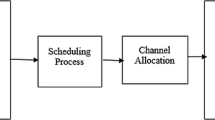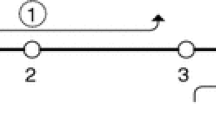Abstract
In the real world the QOS attribute delay is a research dispute that has raised much distress being pragmatic in the multi-hop wireless networks with huge amount of data to be transmitted. The objective is to enhance the throughput and accomplish lesser end-to-end delay at the same time. The prevailing work tries to condense the delay by regulating the packet flow that might control the throughput ratio, as well as congestion is also not considered in the case of multiple flows that share single route path for the transmission of data. In the proposed system, optimal data flow scheduling is conceded out with the function of reducing the end to end delay with maximized throughput ratio by modifiable packet flow ratio. This is performed by offering the novel algorithm stated to as dynamic optimized scheduling and congestion control in wireless network that can defer the optimal performance. This novel approach recovers the throughput and rapidity for wireless networks by altering scheduling scheme with virtual adaptation model. In this scheduling every slot is separated into mini slots to reduce the complexity. To control the congestion again the mini slots are separated as micro slots. Virtual rate adjustment is performed in a diverse manner for multiple flow links that exist within the network environment on the origin of their level of emergency, so as to present individual priority for the separate flow links. This technique succeeds in rendering optimal delay compared to the available research techniques in terms of enhanced performance ratio.







Similar content being viewed by others
Change history
02 June 2022
This article has been retracted. Please see the Retraction Notice for more detail: https://doi.org/10.1007/s12652-022-04031-4
References
Arora VK, Sharma V, Sachdeva M (2019) ACO optimized self-organized tree-based energy balance algorithm for wireless sensor network. J Ambient Intell Human Comput 10:4963–4975. https://doi.org/10.1007/s12652-019-01186-5
Georgiadis L, Neely MJ, Tassiulas L (2006) Resource allocation and cross-layer control in wireless networks. Found Trends Netw 1(1):1–144
Gupta GR, Shroff NB (2009) Delay analysis for multi-hop wireless networks. In: IEEE INFOCOM, 2009
Huang L, Neely MJ (2009) Delay reduction via lagrange multipliers in stochastic network optimization. In: WiOpt, 2009
Huang L, Neely MJ (2010) Delay efficient scheduling via redundant constraints in multihop networks. In: WiOpt, 2010
Huang P-K, Lin X, Wang C-C (2010) A low-complexity congestion control and scheduling algorithm for multihop wireless networks with order-optimal per-flow delay. Technical Report, Purdue University, 2010. [Online]. http://web.ics.purdue.edu/%7ehuang113/
Jagabathula S, Shah D (2008) Optimal delay scheduling in networks with arbitrary constraints. In: ACM SIGMETRICS, June 2008
Jayachandran P, Andrews M (2010) Minimizing end-to-end delay in wireless networks using a coordinated EDF schedule. In: IEEE INFOCOM, 2010
Ju H, Zhang R (2014) Throughput maximization in wireless powered communication networks. IEEE Trans Wireless Commun 13:418–428
Kumar N, Dash D (2019) Flow based efficient data gathering in wireless sensor network using path-constrained mobile sink. J Ambient Intell Human Comput 10:1–13. https://doi.org/10.1007/s12652-019-01245-x
Le LB, Jagannathan K, Modiano E (2009) Delay analysis of maximum weight scheduling in wireless ad hoc networks. In: IEEE CISS, Baltimore, MD, March 2009
Le LB, Modiano E, Shroff NB (2010) Optimal control of wireless networks with finite buffers. In: IEEE INFOCOM, 2010
Lin X, Rasool S (2009) Constant-time distributed scheduling policies for ad hoc wireless networks. IEEE Trans Autom Control 54(2):231–242
Neely MJ (2010) Delay-based network utility maximization. In: IEEE INFOCOM, 2010
Sarkar S, Tassiulas L (2003) End-to-end bandwidth guarantees through fair local spectrum share in wireless ad-hoc networks. In: Proceedings of the IEEE CDC, Maui, Hawaii, 2003
Shakkottai S, Srikant R (2007) Network optimization and control. Found Trends Netw 2(3):271–379. https://doi.org/10.1561/1300000007
Singh M, Soni SK (2019) Fuzzy based novel clustering technique by exploiting spatial correlation in wireless sensor. J Ambient Intell Human Comput 10:1361–1378. https://doi.org/10.1007/s12652-018-0900-6
Stolyar A (2009) Large number of queues in tandem: scaling properties under back-pressure algorithm. Bell Labs Technical Memo
Xie M, Haenggi M (2009) Towards an end-to-end delay analysis of wireless multihop networks. Ad Hoc Netw 7:849–861
Acknowledgements
This work is for the research purpose and no funding is provided.
Author information
Authors and Affiliations
Corresponding author
Additional information
Publisher's Note
Springer Nature remains neutral with regard to jurisdictional claims in published maps and institutional affiliations.
This article has been retracted. Please see the retraction notice for more detail: https://doi.org/10.1007/s12652-022-04031-4"
About this article
Cite this article
Malarvizhi, K., Jayashree, L.S. RETRACTED ARTICLE: Dynamic scheduling and congestion control for minimizing delay in multihop wireless networks. J Ambient Intell Human Comput 12, 3949–3957 (2021). https://doi.org/10.1007/s12652-020-01742-4
Received:
Accepted:
Published:
Issue Date:
DOI: https://doi.org/10.1007/s12652-020-01742-4




